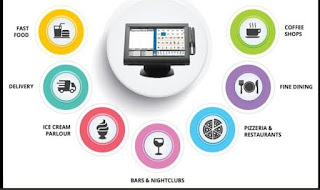BITCOIN-THE NEXT BIG THING IN FINTECH
Digital
asset designed to work as a medium of exchange that uses strong cryptography to
secure financial transactions and control the creation of additional units is
called Crypto-Currency.
- It’s decentralized.
- Doesn’t have a central authority.
- No central server; Bitcoin network is Peer-to-Peer.
- No Central Storage; Bitcoin ledger is distributed.
- Ledger is public; Anybody can store it on their computer.
- No single administrator; Ledger is maintained by a network of equally miner.
- Anybody can become a miner.
- Addition to the ledger is maintained through competition. Until a new block is created, it’s not known which miner will create the blog.
- Issuance of bitcoin is decentralized; Issued as a reward for the creation of a new block.
- Anyone can create a new bitcoin address.
· Inception: January 9,2009 as BITCOIN 0.1.0 Invented by an unknown person named Satoshi Nakamoto.
· Current
Version: August 9,2019 as BITCOIN 0.18.1
· Technology
Used:
- . Block-chain Technology
- . Data Mining
- . POS Technology
Block-Chain
Technology:
The bitcoin blockchain is a public ledger that records
bitcoin transactions. It is implemented as a chain of blocks, each block
containing a hash of the previous block up to the genesis block of the chain.
A network of communicating nodes running bitcoin
software maintains the blockchain. Transactions of the form : player X sends Y bitcoins to payee Z are broadcast to this network
using readily available software applications.
Network nodes can validate, add them to their copy of
their ledger, and then broadcast these ledger additions to other nodes.
In about every 10 minutes a new group of accepted
transactions, called a block is created, added to the blockchain and quickly
published to all nodes, without requiring central oversight. This allows bitcoin
software to determine when a particular bitcoin was spent, essential to prevent
double-spending.
· Data
Mining
 |
| Data Mining Techniques |
Mining is a record-keeping service done through the
use of computer processing power. Miners keep the blockchain consistent,
complete and unalterable by repeatedly grouping newly broadcast transactions
into a block, which is then broadcasted to the network and verified by the recipient
nodes.
Each block contains an SHA-256 cryptographic hash of the previous block, thus linking it
to the previous block and giving the blockchain its name.
Early bitcoin miners used GPU’s for mining as they were
better suited to the proof-of-work algorithm than CPU’s.
Later amateurs mined bitcoin with specialized FGPA and ASIC chips. The chips have become obsolete due to increasing
difficulty.
Today bitcoin mining companies dedicate facilities to
housing and operating large amounts of high-performance mining hardware.
Pooled
Mining
Computing power is often bundled together or “pooled” to
reduce variance in miner income. In a pool, all participating miners get paid every time a participating server solves a block. This payment depends upon the
amount of work an individual has contributed to help find that block.
· POS
Technology.
Wallets: A Wallet stores information to transact bitcoins. More
specifically, a wallet stores the digital credentials for the client's bitcoin
holdings and allows one to access them.
Bitcoin uses Public-key cryptography, in which one
public and one private key are generated for the wallet to operate.
Modes of Wallet Operation :
1. Full
Clients: Verify
transactions directly by downloading a full copy of the blockchain. These are
the most secure and reliable way of using the network. Full clients check the
validity of mined blocks, preventing them from transacting on a chain that
breaks or alters network rules.
2. Lightweight
Clients: Consults full
clients to send and receive transactions without requiring a local copy of the
entire blockchain.Much faster to set-up and allows them to be used on low
power, low bandwidth devices such as smartphones.
Safety Issues.
- Each blockchain is registered to a bitcoin address.
- Bitcoin address requires a valid private key.
- If a private key is lost then the bitcoin network won’t recognise any other evidence of ownership.
- Coins are then unusable & effectively lost.
- If a private key is revealed to a third party e.g. through data breach, the third party can use it to steal associated bitcoins.
Bitcoins are
mainly used in bitcoin exchanges, venture capital by payment service providers
. Industries using Bitcoin as a mode of monetary transaction are
- Online Shopping Industries
Companies like
Microsoft has added bitcoin to its list of payment methods back in 2014.This
made shoppers possible to pay using bitcoin money to buy videos, games, apps
and other services offered by the company.
- Other companies that have added bitcoin to their list of payment methods includes Overstock, Dell, TargetDirect, and CheapAir. Target, Wallmart, Nike, Amazon also accept bitcoin payments, especially from gifts.
- Hotels & Restaurants
- Travel companies like Espedia has added bitcoin to their accepted modes of payments. Bars and Restaurants of North America also accept bitcoin money as payment for their service.
- Online Casinos: Most gamers and especially gamblers prefer using bitcoin for betting or any other transaction in online casinos because betting with bitcoin provides a fast, safe and secure way to pay online. Bitcoin also enables us to keep track of all the bets placed in the online casinos through blockchain.
- Charity: Some of the biggest charity organisations like “Save the Children”. “Human Rights Foundations”, “The Water Project” and “Freesnowden” accept bitcoin contributions to the accounts.
NOTE: The views expressed here are those of the author's and not necessarily represent or reflect the views of DOT Club as a whole



This comment has been removed by the author.
ReplyDeleteIf Bitcoins will be used world wide , then what about the valuation criteria of dollars or rupees. Like Facebook's (libra)where 1/7 th of the population exist, this could be the new valuation model which the world have to follow: handled by a private company.
ReplyDelete